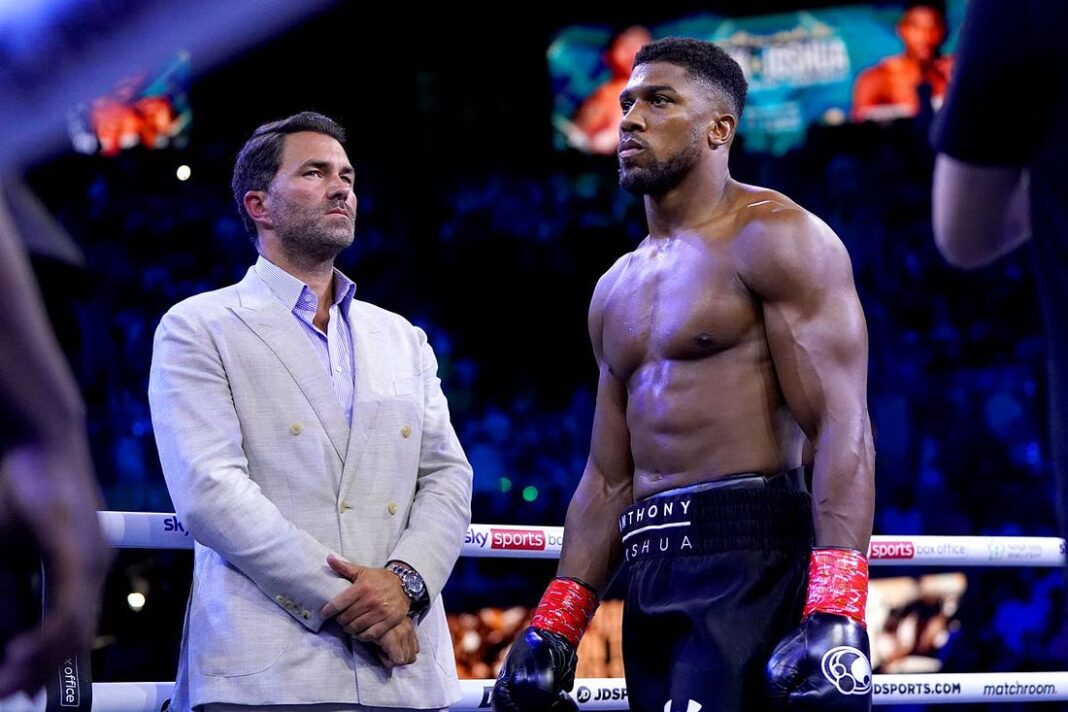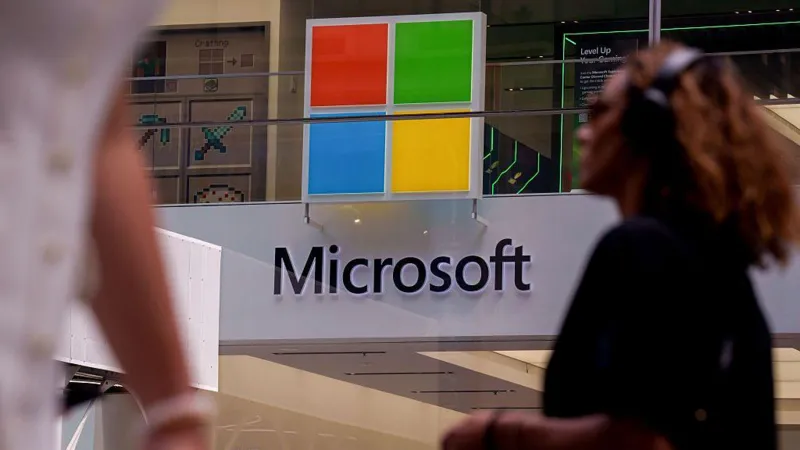The boxing world is bracing for impact as two vastly different universes prepare to collide in what could become 2026’s most polarizing sporting spectacle.
Jake Paul and Anthony Joshua are reportedly set to face each other in a heavyweight bout that represents far more than just another fight night.
This is boxing’s traditional aristocracy meeting its algorithmic future, and the collision promises to be seismic.
The matchup itself reads like sports fiction. Anthony Joshua, the former two-time heavyweight champion whose Olympic pedigree and Wembley-selling power represent everything boxing has traditionally revered, finds himself across the ring from Jake Paul, the YouTube-turned-prizefighter who has systematically dismantled every assumption about how careers in combat sports should be built.
Joshua, despite recent setbacks including a devastating knockout loss to Daniel Dubois and subsequent elbow surgery, remains one of boxing’s most recognizable faces.
Paul, meanwhile, continues his relentless march through boxing’s establishment, most recently dispatching a 58-year-old Mike Tyson in a spectacle that drew millions of viewers while raising countless eyebrows about the direction of modern prizefighting.
What transforms this from mere speculation into genuine possibility is the backing of Saudi Arabia’s Turki Alalshikh, the kingdom’s combat sports kingmaker who has already orchestrated some of boxing’s biggest recent events.
The reported purse split of 99% in Joshua’s favor might sound lopsided, but Paul’s public acceptance of these terms signals something profound about his motivations.
This isn’t about money for Paul anymore.
It’s about respect, validation, and proving that his unconventional path to boxing relevance deserves recognition from the sport’s traditional gatekeepers.
For Joshua, this fight represents a fascinating crossroads in a career that has already experienced the highest peaks and most devastating valleys.
At 35 and coming off a career-altering defeat, he finds himself in unfamiliar territory, needing to rebuild his heavyweight credentials while navigating the twilight of his athletic prime.
A dominant performance against Paul could serve as the perfect warm-up for future title challenges, allowing him to showcase his skills against a motivated opponent while banking a substantial payday.
But anything less than complete dominance risks permanent damage to a legacy already showing stress fractures from recent defeats.
The financial incentives are obvious, but the cultural implications run much deeper.
Joshua’s association with this fight brings him into Paul’s media-savvy universe, potentially introducing him to audiences who consume boxing through TikTok clips rather than traditional Sky Sports broadcasts.
It’s a calculated risk that acknowledges boxing’s shifting landscape while potentially reinvigorating a career that has lost some of its luster in recent years.
For Paul, the stakes couldn’t be higher. This isn’t another exhibition against a retired legend or an MMA crossover looking for a boxing payday.
This is a legitimate, active heavyweight with genuine credentials and everything to prove.
A victory would represent the ultimate validation of his unconventional journey, proving that talent and determination can transcend traditional boxing pathways and earn respect even from the sport’s most skeptical observers.
What we’re witnessing is nothing less than a generational battle for boxing’s soul.
Joshua embodies the Sky Sports era of heavyweight boxing, methodically developed through amateur systems, traditionally promoted, and crowned through established channels that have governed the sport for decades.
Paul represents the DAZN generation, where viral moments matter as much as world rankings, and audience engagement trumps sanctioning body approval.
The cultural divide is stark and revealing. Joshua’s supporters see boxing purity under threat from celebrity spectacle, while Paul’s followers view him as democracy in action, someone who built his own platform and earned his place through results, regardless of how unconventional the journey.
The business case for this fight makes perfect sense in the current sporting landscape. Joshua needs relevance in an era where attention spans are measured in social media cycles and traditional boxing stars struggle to maintain mainstream visibility between fights.
Paul needs credibility in a sport that still questions his legitimacy despite his growing list of victories.
Together, they create something neither could achieve alone: a genuinely intriguing sporting event with massive crossover appeal that transcends boxing’s traditional audience.
The projected venue options perfectly illustrate the cultural forces at play.
Wembley would provide the traditional British boxing atmosphere, complete with the nostalgic gravitas that has made Joshua’s previous appearances there memorable spectacles.
Riyadh would deliver the financial backing and production values that have made Saudi-backed events must-see television, representing boxing’s new global reality.
Either location would guarantee a sellout crowd and worldwide television audience hungry for the unique drama this matchup promises.
From a purely technical standpoint, Joshua should win convincingly.
His size advantage, professional experience, and fundamental boxing skills represent significant obstacles for Paul’s still-developing abilities.
Joshua has shared rings with elite heavyweights like Wladimir Klitschko, Andy Ruiz Jr., and Oleksandr Usyk, experiences that have tested him in ways Paul has never faced.
But boxing has taught us repeatedly that technical advantages don’t always translate to victory, especially in fights carrying this much emotional and cultural weight.
Paul’s greatest weapon isn’t his jab or his footwork; it’s his ability to create moments that transcend sport itself.
He understands intuitively that modern boxing success isn’t just about winning fights; it’s about winning them memorably, entertainingly, and in ways that generate conversation across social media platforms.
His promotional instincts and media savvy have consistently exceeded expectations, turning what should be mismatches into compelling viewing experiences that capture mainstream attention.
This fight matters because it represents boxing’s ongoing evolution from traditional sport to hybrid entertainment, whether purists embrace this transformation or resist it.
Paul has forced the establishment to adapt to new realities about audience engagement, media consumption, and what constitutes legitimate sporting achievement in the social media age.
His success has challenged fundamental assumptions about how boxing careers should develop and who deserves opportunities at the sport’s highest levels.
Joshua, to his considerable credit, seems to understand this cultural shift.
By agreeing to this fight, he’s acknowledging that boxing’s future lies not in protecting traditional hierarchies but in embracing new forms of storytelling and audience connection.
It’s a pragmatic recognition that the sport must evolve to remain relevant in an increasingly crowded entertainment landscape.
The tentative timeline of mid-2026 feels perfect for this cultural collision. Both fighters will have adequate time to prepare physically and mentally for what promises to be an intensely scrutinized encounter.
Promoters can build the narrative arc properly, allowing anticipation to reach fever pitch while giving both camps opportunity to create compelling storylines that will drive interest across multiple demographics.
This transcends the simple question of two men competing in a ring.
It’s fundamentally about two different visions of what boxing can be in the modern era, with the winner helping to define the sport’s direction for the next decade.
The outcome will influence how future crossover stars are received, how traditional champions approach their careers, and how boxing positions itself within the broader entertainment ecosystem.
Love it or hate it, Jake Paul versus Anthony Joshua represents exactly where boxing finds itself in 2026: caught between tradition and transformation, with the whole world watching to see which direction ultimately prevails.
The fight itself may last only twelve rounds, but its implications will reverberate through the sport for years to come.


